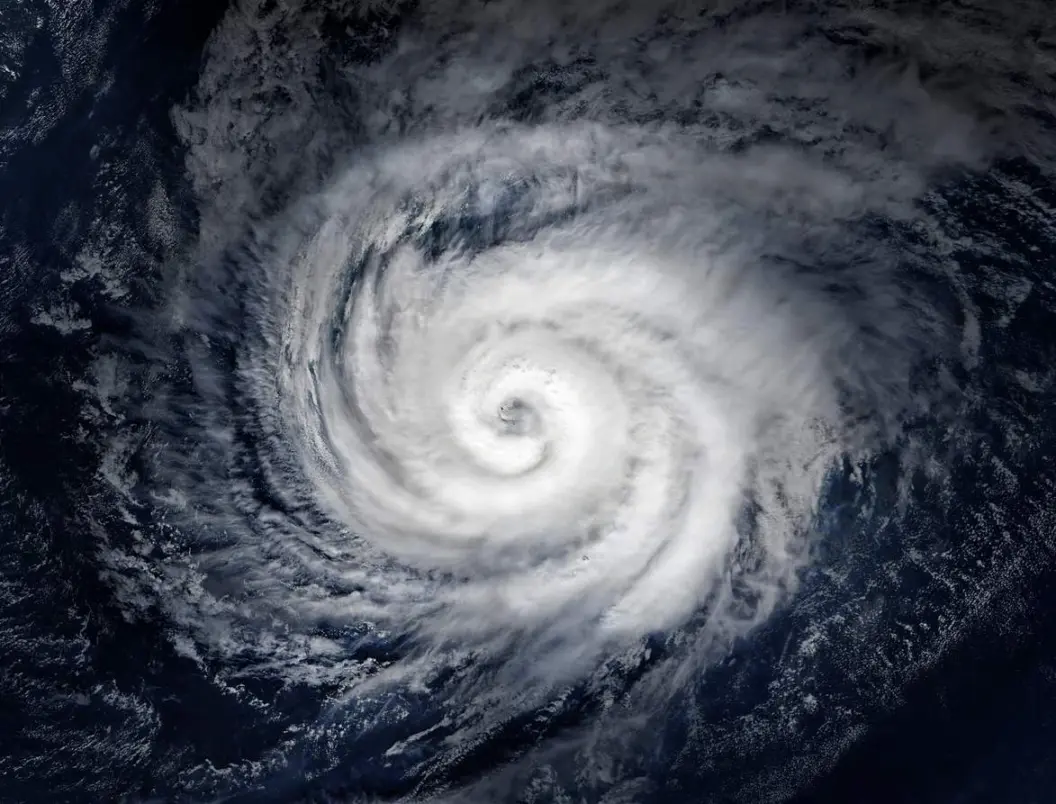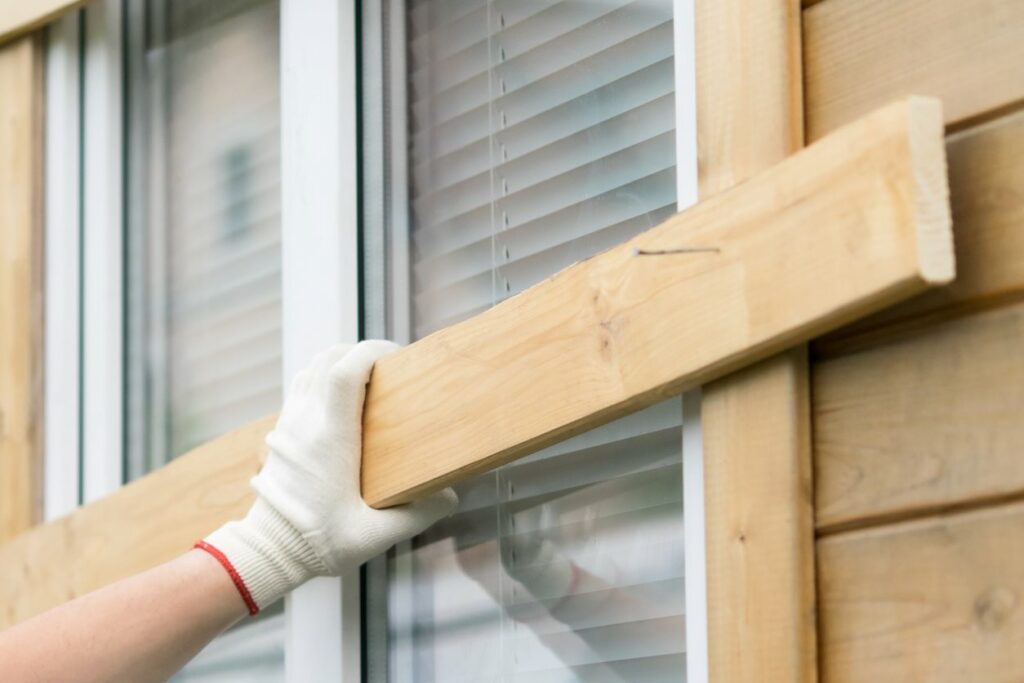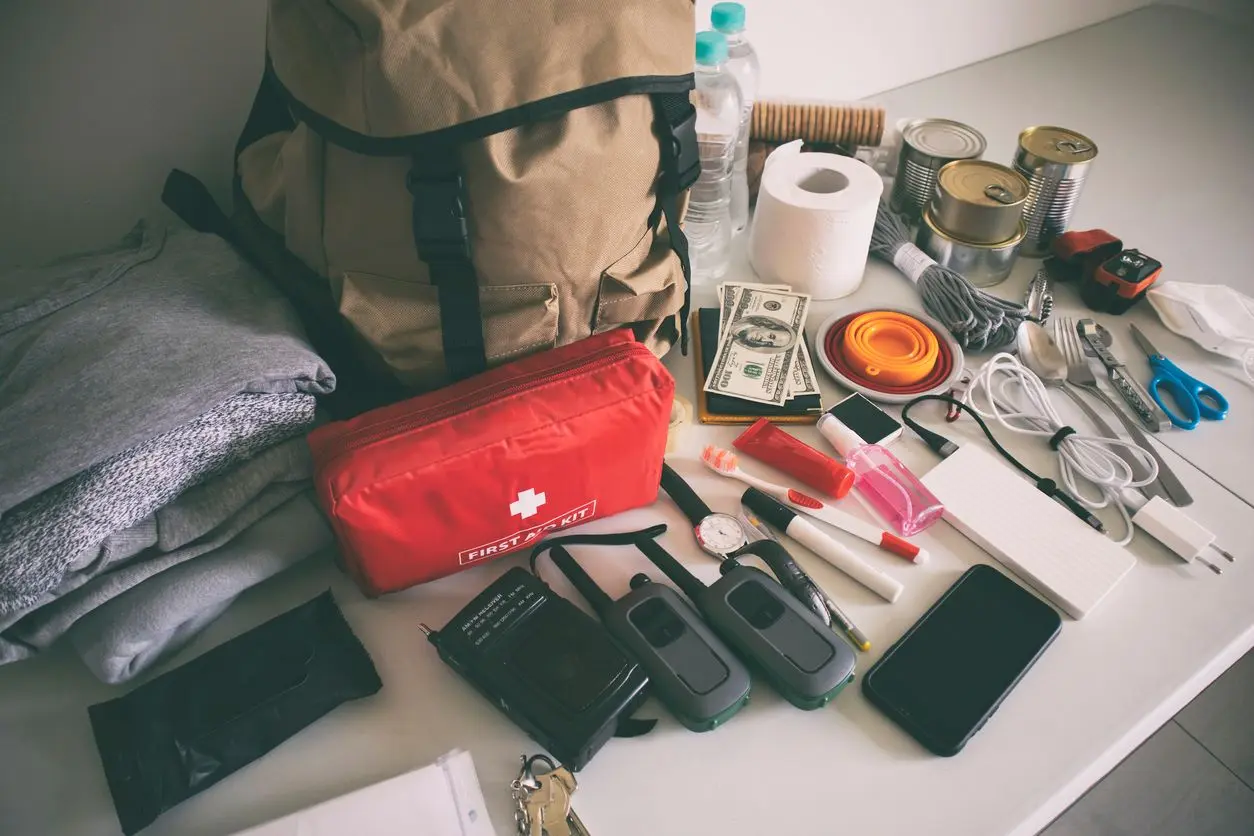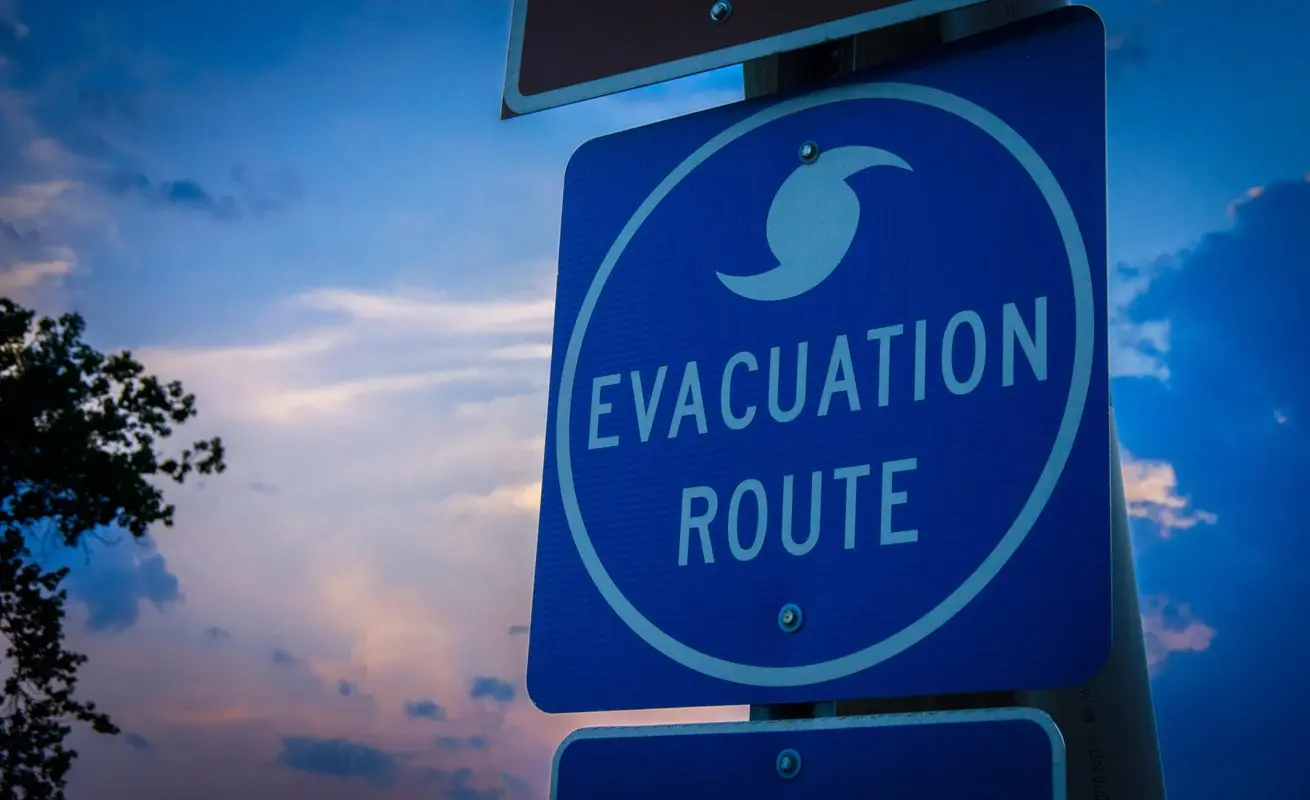Protecting Your Valuables During California’s Peak Hurricane Season

The West Coast may not be known for tropical storms, but the tides have turned over the last few years. Hurricane season in California runs from May through November, and in the wake of 2023’s Hurricane Hilary, the first tropical storm to hit Los Angeles in nearly a century, it’s imperative for SoCal locals to be prepared for increasingly active eastern Pacific storms.
Knowing how to protect yourself, your home, and your belongings from severe weather is essential to living in a hurricane-prone zone. We’ve compiled some expert advice on how you can use your resources at home and in your community to be ready next time the winds start to blow.

Preparing for Hurricanes
As soon as you learn of a tropical storm beginning to brew in the Pacific, there’s no time like the present to start preparing your home and belongings to weather the storm. Be well versed in what needs to be done to maximize your efficiency days in advance so you aren’t left to batten down the hatches at the last minute.
Protecting Your House From Hurricanes
Don’t wait to visit your home improvement store until a storm arrives. Have all the necessary supplies ready to go at the start of hurricane season, and be ready to take the following steps toward securing your home:
- Board up windows and doors. Use boards, plywood sheets, and large nails to cover doors and windows, using caulk to seal gaps.
- Prepare a water supply. Freeze gallon bags of water to be used as a source of cold temperature in case you lose power in your refrigerator and freezer and as an option for safe drinking water. You should also fill a bathtub with water to flush toilets if needed.
- Acquire a generator. If you lose power, have a generator ready to power essential appliances.
- Protect your patio. Take outdoor furniture and equipment indoors.
- Shut off utilities. Know how to quickly shut off electricity, water, and gas.
- Pile up sandbags. Use stacks of sandbags to help redirect water away from your home to prevent flooding.
- Turn on the radio. Purchase a battery-powered radio to stay up-to-date on the forecast if you lose power.
Protecting Vehicles During Hurricanes
From cars to RVs, have a plan to protect any personal, recreational, and commercial vehicles residing at your home during the storm.
- Park indoors. If you don’t own a garage at your residence, seeking out car storage, boat storage, or RV storage at a local storage facility can be an inexpensive alternative. Otherwise, park on the highest ground possible.
- Cover it up. Block off all doors and windows with sheets of plywood. Outdoor vehicles should be given a heavy-duty cover padded with cushioning.
- Hold to the ground. Boats, RVs, and cars outdoors should be secured to the ground using an anchor or strap kit. Cover up all vents, turn off propane cylinders, and fill every tank with water to help weigh it down.
- Stock your supplies. Before departing for an evacuation, be sure your vehicle of choice is fully stocked with supplies, including blankets. Read on for a checklist of items to be sure you have with you before leaving.
Protecting Belongings From Hurricanes
If you have valued belongings in your home, keep them at the highest altitude possible, as basements and ground-level floors will most likely flood during a tropical storm. For added peace of mind, consider renting residential self storage during hurricane season to lock up your possessions elsewhere, especially if your home is in an area prone to flooding.
Do I Need Hurricane Insurance?
While your homeowners insurance may include coverage for damage caused by severe weather, you may not automatically be granted relief from hurricane-related flooding. We advise seeking flood insurance through the National Flood Insurance Program (NFIP), which offers protection not always provided by homeowners insurance policies.

Tips for Hurricane Season
Don’t let yourself be caught off guard if a hurricane is coming. Having a plan and a pack ready to go will help you and your family evacuate smoothly and without worry. Next time you see a storm on the horizon, using a hurricane preparedness checklist will help alleviate any anxieties about what to do when there is a hurricane.
Checklist for Hurricane Evacuation
You never want to be left scavenging grocery stores and pharmacies once a hurricane is on the radar. Pack a dedicated go bag for hurricane season to hit the road at the drop of a hat. This waterproof backpack or duffle bag should contain ample storage space to fill with the essential items you and your family need during an emergency evacuation. Here are some items we recommend packing:
- Medications, EpiPens, and over-the-counter painkillers
- A three-day supply of non-perishable foods, including a can opener if needed
- A first aid kit
- Flashlights
- Batteries and portable phone chargers
- Whistle, for signaling help
- Physical road maps
- Battery-powered radios and walkie-talkies
- Enough gallons of water to last each person three days
- A few hundred dollars in cash
- Vital documents in a sealed, waterproof casing, including insurance, medical records, social security cards, and other personal records
- Keys for your house and vehicles
- Swiss Army knife
- Clean clothes and rain gear
- A physical list of emergency contacts
- Personal sanitation supplies and hygiene products
- Pet care supplies, if applicable
Develop an Evacuation Plan
As bad as the traffic can get in L.A., it’s nothing compared to the congested highways caused by hurricane evacuations. Before the season hits, have a clear-cut plan of where you’ll go, what routes you’ll take, and what you’ll do once you arrive at your destination. Ideally, you should head for a friend or relative’s inland home to avoid the hassle of reserving a hotel or rental last minute, which will likely be overbooked and overpriced given the circumstances.
Ensure everyone in your party is on the same page about your pen-to-paper plan, including meeting places in and out of town, emergency contact information, and communication strategies if you are separated. If you need to get a hold of someone, texting will likely be your most reliable means of communication.

Secure Your Belongings This Hurricane Season With Trojan Storage
When a hurricane approaches, you won’t have time to shove all your prized possessions into your evacuation vehicle. Trojan Storage has secure storage facilities around Southern California that are located inland to help you rest easy this hurricane season. Our climate-controlled storage options during hurricane season come in a range of sizes and types, giving you the flexibility to choose the solution that gives you the most confidence.
Our brand-new storage facility in Elk Grove, CA, has been designed from the ground up with industry-grade amenities for your convenience. See below for the features you’ll have access to when you rent an Elk Grove storage unit at Trojan Storage, and learn more by reading our brochure:
- Climate-controlled storage
- Drive-up access
- RV and boat storage
- Digital surveillance system
- Dollies and carts available
- Automated doors and locks
- Electronic gate access
- Fully fenced grounds
- Ground-level units
- Access seven days a week
- High ceilings
- Individually alarmed units
- Surveillance cameras
If you’re ready to discover the convenient storage solution you’ve been waiting for, contact us today and find us at a location near you!